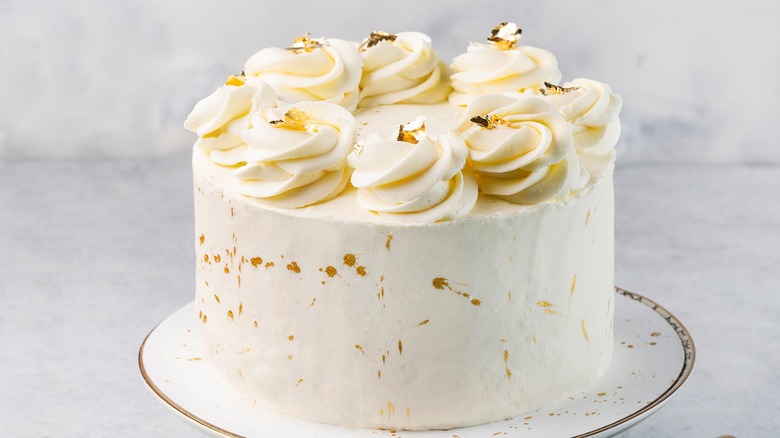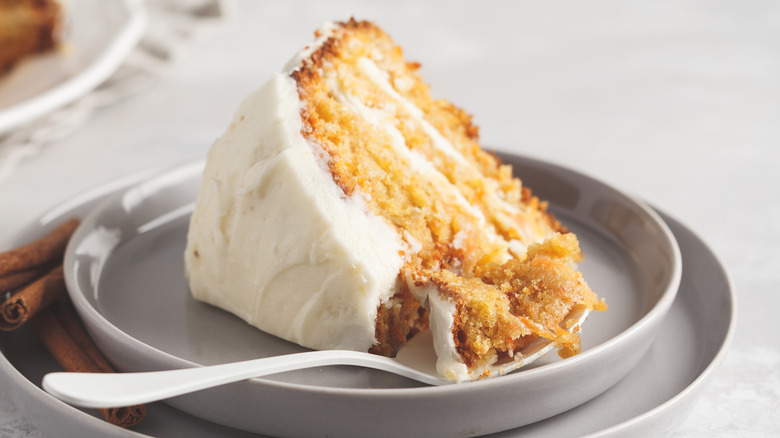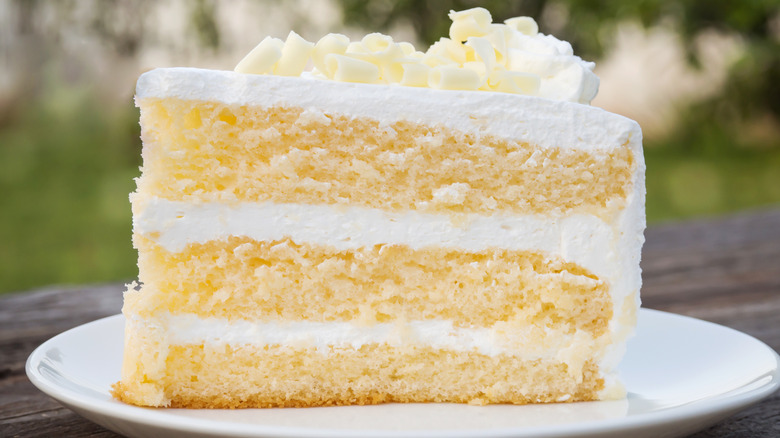Ice Water Is The Unexpected Trick To Getting Deliciously Spongy Cake
Slicing into a perfectly frosted cake comes with an expectation that a delicate crumb will delight the palate. An ingredient with no flavor is the hack to get a delicate, springy sponge. It is time to substitute ice water for milk in your cakes.
If you love your favorite bakery's white cake and its delicious spongy texture, the secret may not be a special European butter or copious amounts of milk. Ice water in the cake batter ensures that the crumb is superb. The reason why has to do with the science of baking.
Cold fat in a recipe takes longer to come up to temperature during the baking process. Adding ice water to the batter keeps the butter in its solid state for longer. As the butter slowly melts, it creates a lighter, fluffier rise as the batter bakes. The ice water baking hack is a slice of knowledge that makes any cake recipe a cut above the rest.
Is the ice water baking hack a pour of ingenuity or just a smart substitute?
The old saying about necessity being the mother of invention sometimes finds its way into the baking aisle. The idea of the ice water baking hack can be traced back to vintage recipes where water replaced milk. The old-school cakes may have been created out of necessity (milk was expensive and in short supply during the Great Depression). Bakers in the past might have just been searching for a more texturally appealing result, too. Either way, the concept took hold.
Today, the rise of nostalgia baking might be bringing old-school recipes back into rotation, but it is more than just baking like grandma. Some bakers look for ingredient substitutes as a way to avoid dairy or eggs. Finding ways to modify recipes without sacrificing flavor and texture is a lifesaver — and the ice water trick happens to be one way to make dairy-free cakes.
Although rationing and bare shelves might not be as common these days, groceries are still getting more expensive. Ice water is less costly than milk, and some people may rather save that cup of milk to drink with the cake than put it in the batter.
The baking science at the heart of the ice water baking hack
While savory cooks easily add a dash here and a sprinkle there, baking is a science, not an art. The rise or fall of a cake happens due to specific measurements, ingredients, and temperature. Specifically, when using butter, the wrong temperature can turn a fluffy sponge into a dense disaster.
Cold butter versus room temperature butter in a recipe will impact the bake. With cold butter, as the batter bakes, the butter pieces melt and the water evaporates. This process can create flakey layers in pastry and it can also produce a light, airy sponge in a cake. This less dense crumb makes for an enjoyable mouthfeel.
For the baker who is wondering why their cake lacks airy, spongy consistency, the reason might be tied to the butter's temperature. Keeping that ingredient cool might be the simple solution to a dense, crumbly problem. Try the ice water trick next time you bake to see how much of a difference it makes.


